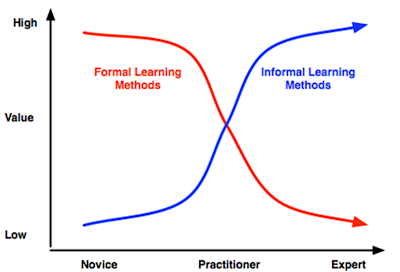Communications is not one of the International Baccalaureate Organisation's (IBO) strong points. Surprising this, given its status in the world.**
So, in response to requests for information about where the IBO is going, I publish the notes that I made for staff at school.
It is worth reading the IBO's philosophy at the outset since this is the driving force for the changes afoot. There has been a change here, a change that has been working its way in for some time. At one time the IBO could have been regarded as a service organisation, providing an internationally recognised diploma (DP) for universal university entrance. Indeed, early pioneers of the IB diploma would describe this exactly in this way - including my father, one of the first IB diploma teachers. Over the years, and particularly since the influences of the Primary Years Programme (PYP) and the Middle Years Programme (MYP), a much more crusading approach has been taken. I recall previous IB World Heads Conferences where hugely expansionist ideas were rehearsed by the IBO and resolutely rejected by the Heads present.
So it is significant that I heard, for the first time, definite statements about the PYP and MYP influencing the DP. Some people might say "about time" but I would urge a much more cautious approach - do not affect the value of the IB diploma nor the investment that schools have in it.
The IBO have split off assessment and curriculum into two departments, and it is clear that these are early days in this split. You will notice a couple of slides on a continuum of validity and reliability and the quote from Alec Peterson which was used by Carolyn Adams to introduce the idea. She used this in answer to complaints about the reliability of internal assessment moderation and marking. I do believe that there are other ways of looking at this, but that will have to wait for another post.
Carolyn Adams explained the ideas behind e-marking, the IBO's answer to improving quality and answering the critics of expansion. This seems an excellent approach although I still worry about the quality of examiners that the IBO find.
The changes as I noted them (please beware - I might have got some things wrong!) are listed on the final slides - and the presentation finishes with me imploring my teachers to get involved. It is a sad state of affairs that such a small proportion of IB teachers around the world take part in the curriculum reviews.
**The IBO's HeadNet, supposedly the online area for Heads, contains ancient information - minutes from 2010 and very little else. A new IB communications person has been employed - let us hope s/he can drag this organisation into this century.


